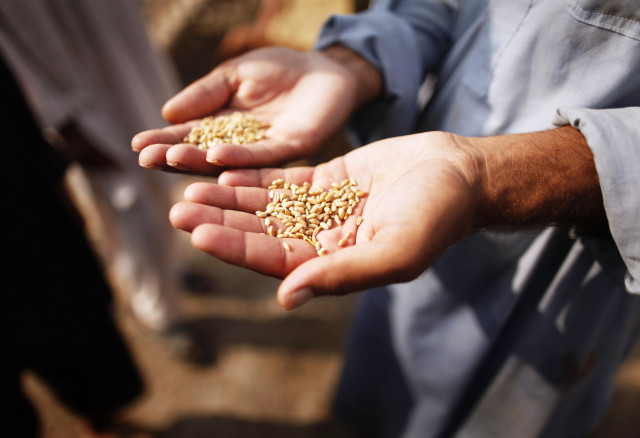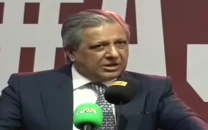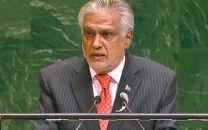Punjab pulls plug on wheat market reforms
Chief minister announces Rs3,500 per maund price

The Punjab government has reached an agreement with the private sector to procure wheat from farmers at the rate of Rs3,500 per maund, abruptly abandoning its market-reform rhetoric.
The decision was taken during a high-level meeting chaired by Punjab Chief Minister Maryam Nawaz Sharif to review the province's wheat policy and crop procurement framework.
The Maryam-led government had earlier touted the free-market approach as ensuring fair returns for growers and stabilising the market ahead of the next crop cycle.
The policy is a complete reversal of the controversial step aimed at deregulating the wheat market.
The 'free market' policy had effectively ended the government's decades-old role in wheat procurement and support pricing.
Heavy floods in southern Punjab, however, disrupted supply chains. As demand from flour mills surged, wheat prices shot up to Rs4,000 per maund. With no price monitoring system or anti-hoarding mechanism in place, profiteering flourished unchecked.
Alarmed by the surge in flour and bread prices, the government abruptly abandoned its market-reform rhetoric. Invoking the Essential Commodities Act 2024, it capped wheat prices at Rs3,000 per maund and notified new rates for atta and roti.
An unannounced ban on the inter-provincial movement of wheat followed, and millers were told to obtain permits for even inter-district transport -- measures that effectively reversed the process of deregulation. Provincial authorities, including the Punjab Enforcement and Regulatory Authority (PERA) and district administrations, were instructed to raid private warehouses and seize wheat stocks.
During Wednesday's meeting, the Agriculture Department presented a detailed briefing on the upcoming wheat cultivation season and shared the outlines of a comprehensive wheat procurement plan for next year.
Officials briefed the chief minister that Punjab currently has ample wheat reserves and that there is no shortage of the staple grain in the province.
Chief Minister Maryam Nawaz said her government was committed to supporting the farming community. "Our farmers are our brothers; we will not abandon them."
Highlighting her government's recent initiatives, she said, "For the first time in Pakistan's history, 1,000 free tractors have been distributed among wheat farmers".
Maryam added that under the Kisan Card scheme, billions of rupees worth of agricultural inputs, including seeds, fertilisers and pesticides, had been provided to wheat growers across Punjab.
She further stressed that all types of fertilisers were available in abundance across the province at controlled prices, ensuring that farmers have access to the essential resources needed to boost production.
The chief minister said her government's agricultural reforms were aimed at empowering farmers, improving yield and promoting sustainable farming practices.
Industry insiders now fear a return to the old quota-based regime, where a handful of millers enjoyed privileged access to subsidised grain. The state's re-entry into the market, they argue, has revived inefficiency and rent-seeking - the very ills that deregulation aimed to eliminate.



















COMMENTS (2)
Comments are moderated and generally will be posted if they are on-topic and not abusive.
For more information, please see our Comments FAQ